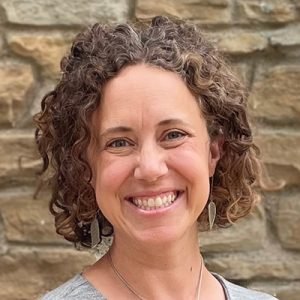A research network housed at the University of Minnesota School of Public Health (SPH) will continue its focus on the unique health challenges faced by rural populations, particularly those related to aging. Funded by the National Institute on Aging, the Interdisciplinary Network on Rural Population Health and Aging (INRPHA), pools expertise from a range of disciplines to advance research, policies, and interventions tailored to improving the health of rural populations in communities across the U.S. INRPHA was previously housed at Penn State University and has moved to the SPH for a new five-year grant cycle.

“We’re grateful to the National Institute on Aging for its continued support of the INRPHA, and thrilled to add to SPH’s strong tradition of research in support of public health efforts in rural communities,” says Carrie Henning-Smith, SPH associate professor and INRPHA principal investigator. “We see this as an opportunity to support research that expands our knowledge of what is working well in rural parts of the U.S.—looking at examples where older adults in rural communities are thriving, and exploring the policies or interventions that are contributing to those successful outcomes. At the same time, we’re interested in research that highlights differences among rural people and places, rather than treating all of rural residents like a monolith,” she says.
The INRPHA’s work is organized around four key aims:
- Conducting and supporting research that enhances understanding of the multidimensional causes of health and mortality outcomes, and disparities among U.S. rural working-age and older adults.
- Supporting and growing a network of researchers, including scholars from relevant disciplines who represent a range of topical and methodological perspectives.
- Providing development and training opportunities through pilot grants, structured mentoring, topical and data workshops, and regular network meetings.
- Advancing members’ dissemination of research findings through training and support of academic articles and policy briefs, as well as public webinars to expand access to knowledge related to rural population health and aging.
The INRPHA is a collaboration among multiple institutions. While SPH is the lead, Henning-Smith will partner with co-principal investigators from Penn State University, Syracuse University, Mississippi State University, and the University of Colorado at Boulder. INRPHA is under the umbrella of SPH’s Rural Health Research Center. INRPHA will also partner with the UMN Life Course Center and SPH Center for Health Aging and Innovation to promote specific activities and opportunities.
Henning-Smith noted that research that emerges from INRPHA pilot grants has the potential to inform both policy and practice.
“Rural populations are ahead of the curve when it comes to population aging; that is, they are older, on average, than urban residents, and are actively engaged in adjusting to changing demographics,” says Henning-Smith. “That makes aging especially exciting to research in rural areas, and an ideal place to develop policies to support aging populations.”
Henning-Smith encourages anyone at UMN who is interested in joining or collaborating with INRPHA to reach out, via inrpha@umn.edu

